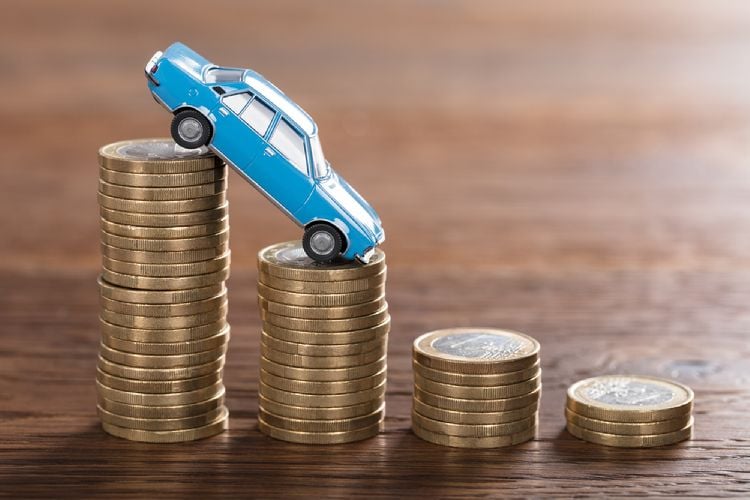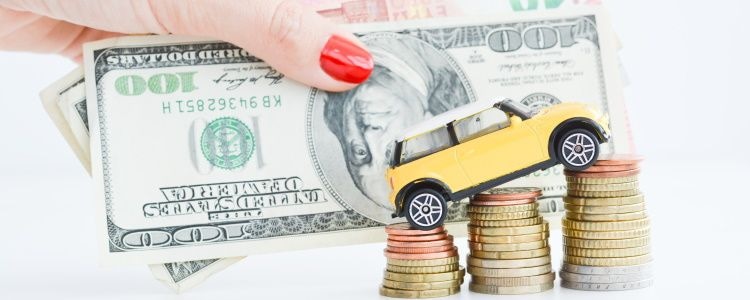Qualifying for a zero-down car deal likely means having good credit and qualifying income. However, if you're a bad credit borrower, you’d be hard-pressed to qualify for an auto loan without a down payment. Besides – down payments are typically a great idea for borrowers across all credit ranges!
In many cases, lenders require a down payment in order to approve somebody with damaged credit for a car loan. And not having one can be a problem. This may not be what you want to hear as a bad credit borrower, but it's the truth.
Borrowers may sometimes be able to qualify for programs that reduce or eliminate a down payment, temporarily in some cases, but if you're struggling with credit issues, you're more likely to be required to make one. In reality, making a down payment is one of the strongest moves you can make in auto financing. Borrowers tend to qualify for better rates, terms, and programs when they provide money down on an auto loan.
We know how frustrating it can be to hear a dealer say "We'd love to get you in this car, but we are going to need a down payment." However, the larger the down payment you make, the more you're helping yourself out.
Is Zero Down Payment on a Car a Bad Idea?
Opting for a zero-down car loan isn’t a bad thing – but with a lower credit score, it’s not likely to happen. Most bad credit auto lenders require at least $1,000 down or that you bring at least 10% of the vehicle’s selling price to the table. Down payments are a requirement of most subprime (bad credit) lenders, and it's often called having “skin in the game.”

Research shows that borrowers with skin in the game are more likely to complete a car loan. To a lender, a borrower who brings a down payment to a deal is more likely to make their payments, complete the loan, and avoid default. It also means a higher likelihood of qualifying for the auto loan.
Down payments can widen your vehicle choices since they allow you to get into more expensive cars that are outside your preapproval amount. If you're approved for a $15,000 auto loan, but can't find anything for your situation, adding a larger down payment amount may open up more vehicle choices. In this scenario, if you have your heart set on an $18,000 vehicle, coming in with a $3,000 down payment could put it in your price range.
Why Is No Down Payment a Problem for a Lender?
A down payment can be seen as a way for a high-risk lender to protect themselves. Subprime lenders, that work with credit challenges, typically require at least $1,000 or 10% of a vehicle's selling price down, sometimes whichever is less.
Down payments can help the lender by:
- Helping to recover some costs if you walk away from a loan in the first couple of years. If there's negative equity it's harder for the lender to cover the cost you owe by selling the car. They can't recoup any money if a borrower hasn't made a down payment.
- Being a show of good faith. There's a positive correlation between a borrower making a large down payment and their ability to successfully complete a loan. A down payment gives a borrower a monetary stake in the vehicle and increases their sense of ownership, which gives lenders peace of mind.
Therefore, subprime lenders have a better chance of approving you if you’re able to provide a down payment. The bigger it is, the better your approval chances are (with all else being equal).
Why No Down Payment Is a Problem for You
Even if you were to be approved for a 0% down auto loan, it’s still not in your best interest to skip the down payment if you have less than perfect credit. Why? Let's take a look:

- It could be the difference between approval and denial – Lenders calculate the loan-to-value (LTV) of all potential loans. A down payment helps you reduce the LTV and improve your chances of being approved.
- It reduces the amount of money you need to borrow – A reduced loan principal lowers your monthly payments, and the less you borrow the less there is for interest charges to stack up on.
- It makes a shorter loan term possible – When you finance less, you can reduce your loan term which helps save on interest charges over the life of the loan. Even shortening your loan term a year or two could end up saving you thousands in interest expenses.
- It reduces negative equity – Cars are depreciating assets that lose value over time. If you don't make a down payment (or only make a small one), you may end up owing more money on your loan than the vehicle is worth.
In many cases, not having a down payment is going to be a problem for the lender and it's going to be a problem for you. When making a big purchase like a car, it's best to prepare ahead of time and save up some money to put down.
Financing for All Situations
Auto Credit Express has been helping people with damaged credit find auto financing for over two decades. We help all kinds of people in all kinds of credit and financial situations. Even if you have little to no money to put down at this time, it’s possible to find a dealer that's signed up with the lenders that can assist you.
Our service is free and it only takes a few minutes. Find out what we can do for you by filling out our secure online auto loan request form. We'll get to work for you right away.



















